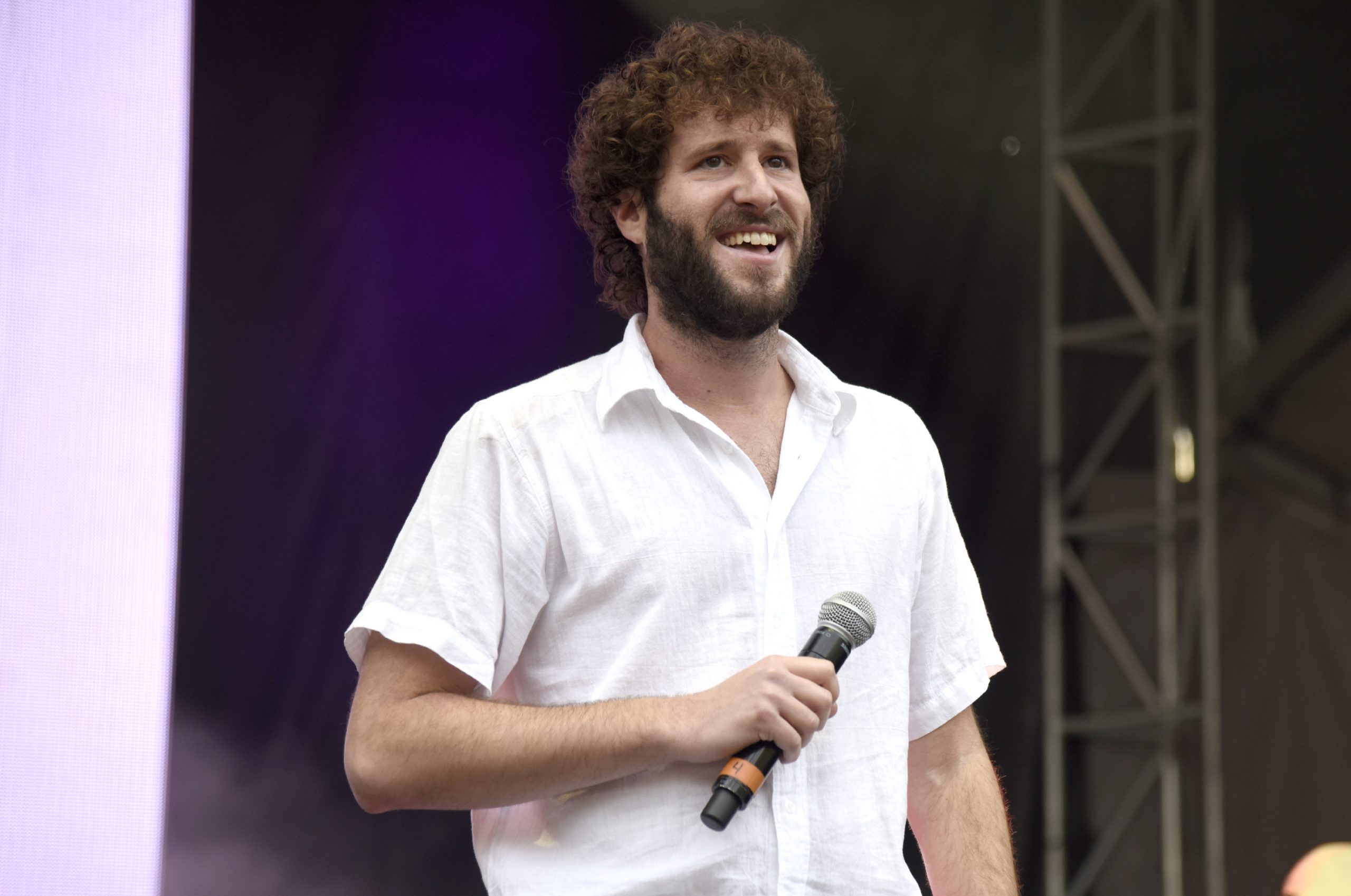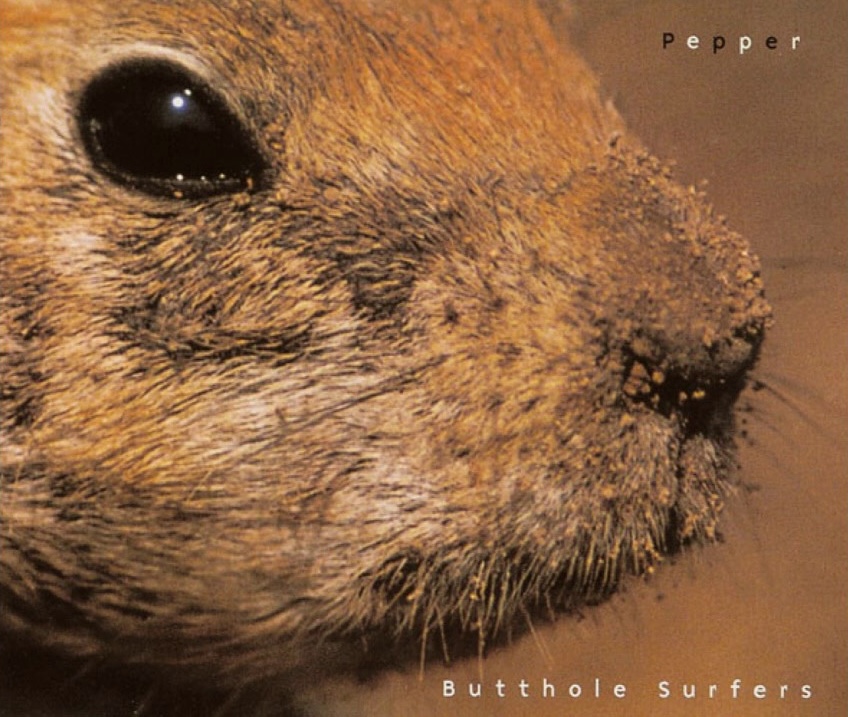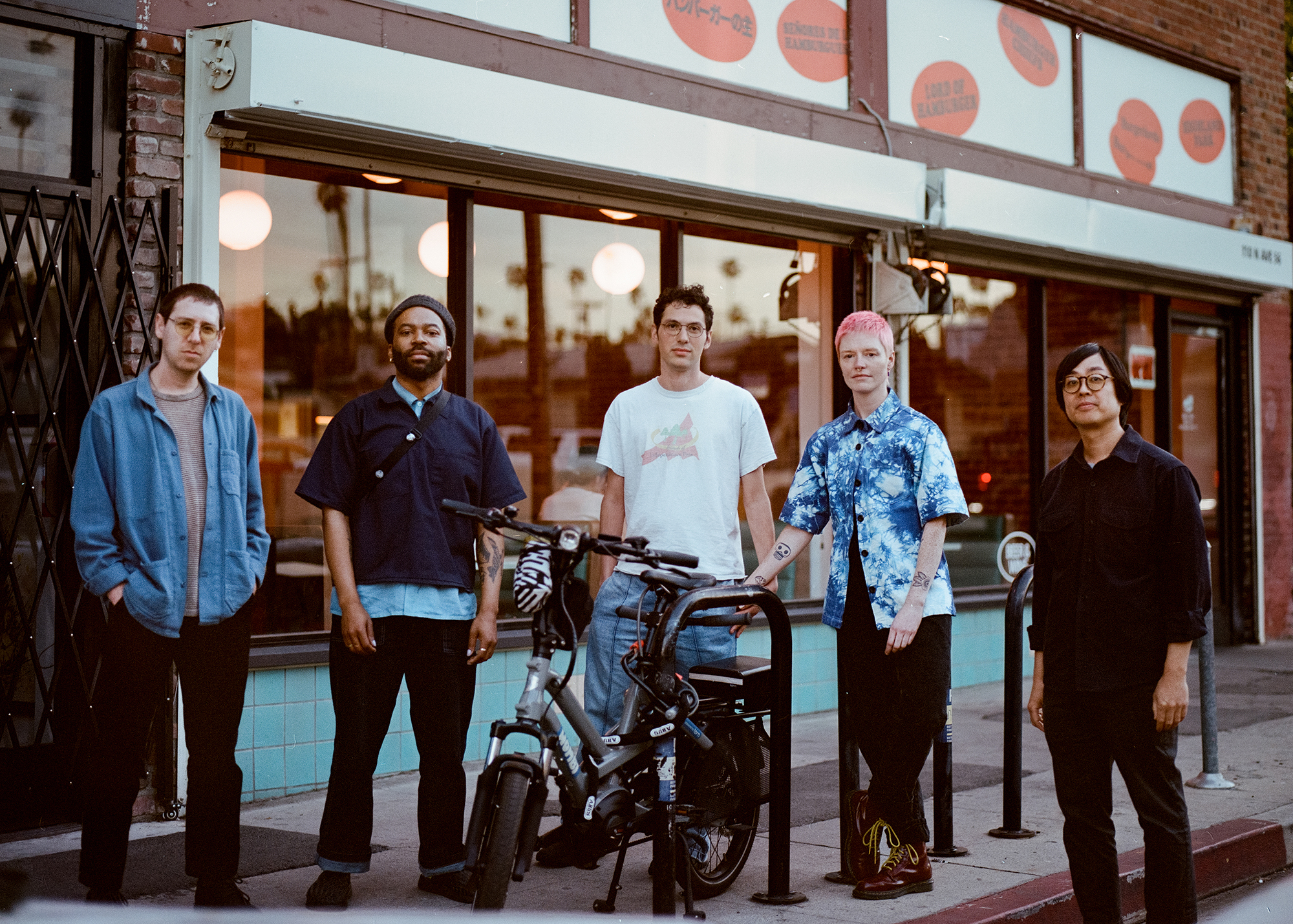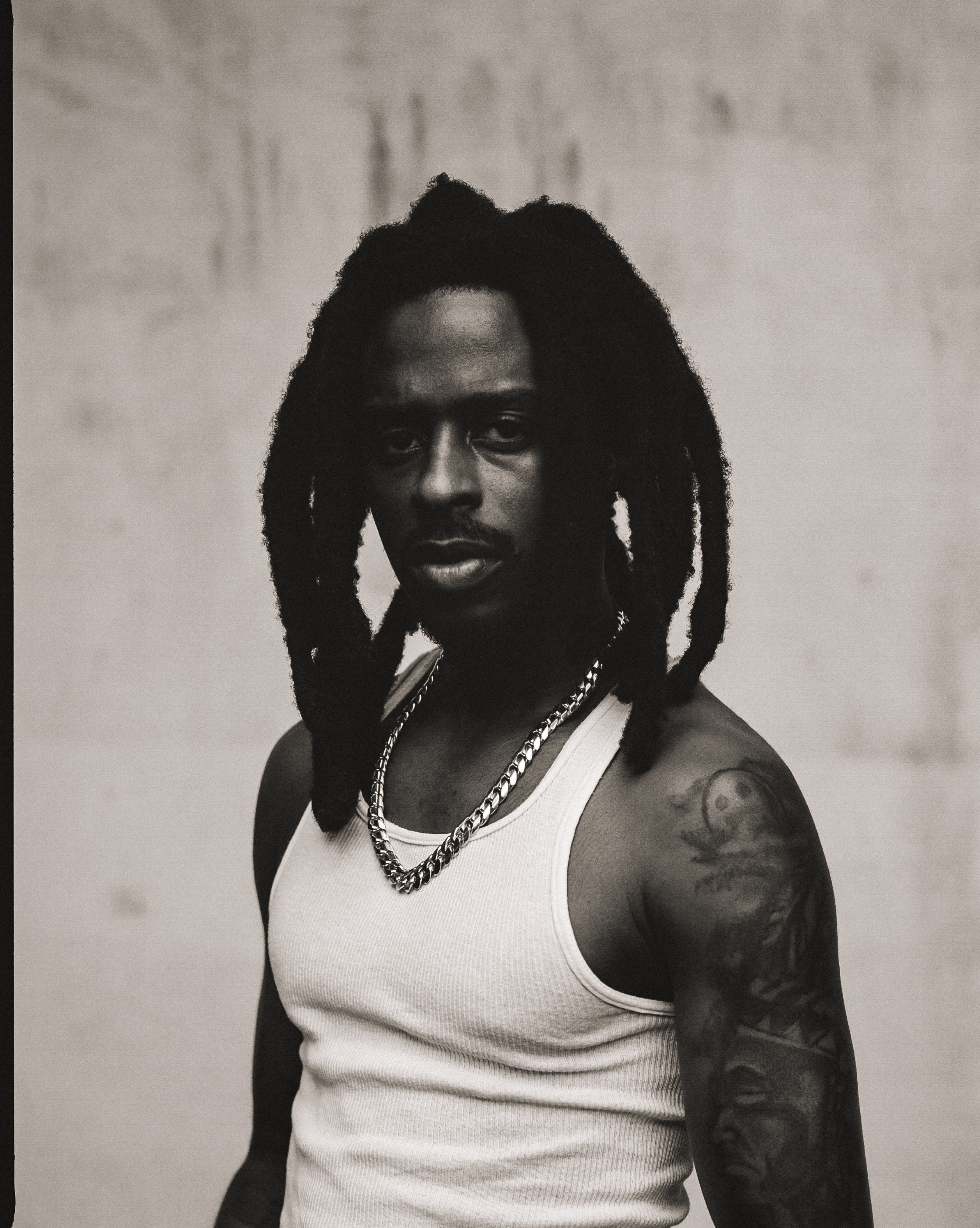It takes real talent to create a song based on the premise that Chris Brown is the man and end up with something likable. For three minutes and 36 seconds -- or 5:21 if you're watching the music video, as more than 57 million people have so far -- that's the illusion "Freaky Friday" successfully sells. The track, which just debuted at #9 on Billboard's Hot 100 singles chart, is humorous, catchy, and contagiously fun, at least until you stop to think about it.
In the two weeks since its release, "Freaky Friday" has become the biggest hit by far for Lil Dicky, the white comedy rapper born David Andrew Burd. The song has a gold-plated hook sung by Brown and impeccable if unremarkable pop-rap production from a team including DJ Mustard, but what has rocketed it to popularity is the joke that plays out in its lyrics and onscreen in its video: Dicky wakes up to discover he's switched bodies with Brown (hence the movie-referencing title) and instantly relishes the benefits of his new identity. He marvels at his tattoos and dancing ability. He FaceTimes Kanye West, blubbering like a fanboy. He gasps at his easy access to fancy cars and beautiful women. He gleefully and repeatedly indulges his newfound liberty to say the N-word.
The gag here is that Brown himself is singing in character as Dicky in Brown's body, so the white Jewish guy from the Philadelphia suburbs isn't actually dropping N-bombs. He gets to have his cake and eat it too. When the second verse rolls around, Brown wakes up in Dicky's body and grumbles about his small penis (in case you didn't catch the punchline embedded in the rapper's stage name) before embracing the benefits of relative anonymity: He can walk down the street in peace, unburdened by paparazzi. He's a Blood, but he can safely wear blue. He doesn't have to put up with racism or the antipathy that stems from his "controversial past."
This all comes to a head when Brown, fed up with Dicky's life and alarmed to discover his cock is trending on Twitter, tracks down Dicky and confronts him. Things almost devolve into violence before Dicky reminds Brown that by attacking, he'd only be hurting himself, initiating the epiphany that switches them back: "I love myself!" It's a 21st-century parable, you see? This being a Lil Dicky song, though, the happy ending is preempted by a few more rapid-fire body-swaps for the sake of cheap laughs: Now Dicky is Ed Sheeran, and it's kind of lame! Now he's DJ Khaled, and why is he shouting so much?! Now he's Kendall Jenner, and it's time to explore the female anatomy!
"Freaky Friday" is executed with crisp professionalism. Both musically and comedically, the beats are on-point. In the video, Brown excels at portraying a jubilant Dicky inhabiting his body; he smiles so widely and emphatically that it's hard not to smile back. The performance is a reminder of how magnetic the guy was before everything went sour and he dug into a villainous persona rather than attempt some kind of turnaround. As it stands, though, he's still the person who was charged with battery for assaulting Rihanna in 2009 and has continued to perpetrate violence against women ever since without much sign of remorse, who just last year was hit with a restraining order by ex-girlfriend Karrueche Tran. So making him the hero of a lighthearted hip-hop romp doesn't sit super well with me.
Five years ago I published an essay focused on Brown and Surfer Blood's John Paul Pitts, exploring the age-old question of how to deal with art by disreputable characters. My perspective on the matter has changed since then. I still believe that whether to continue enjoying music by alleged perpetrators is a personal decision everyone must bring before their own conscience. What's different now is my own calculus about the question.
Back then my position could be summed up like so: (a) Let he who is without sin cast the first stone, and (b) if the song is good enough, I will bump it no matter who made it. That was an honest reflection of both my theology and my listening habits, but I have come to see the latter point as a copout. I still think a godless society like ours is ill-equipped to draw the line about what constitutes unforgivable immoral behavior, and the conventional wisdom that takes hold about who and what is unacceptable still feels highly selective to me. Yet my own conscience about Brown and other abusers of women has grown a lot more sensitive over the years. Especially after watching so many men (including our own president) escape consequences for these kinds of actions, it feels right to hold presumed perpetrators accountable in whatever small, personal way I can, even if it's just by denying them a few streams.
This conviction feels particularly urgent on a week when the guy with the #1 album in America stands accused of beating up a pregnant woman and intimidating his ex-girlfriend to prevent her from testifying against him, and who seems, um, rather untroubled by domestic violence. Only God can judge, but in the meantime it's up to every individual to push back against odious behavior as they see fit. Redemption, it seems, should require some kind of repentance. And if I can give up a musical genius like R. Kelly on the basis of disturbing evidence against him, you better believe I can give up Chris Brown.
This is where appreciating Lil Dicky gets a little sticky. As far as I know, his only crime is being distasteful, often charismatically and in ways so subtle they barely register on the social media outrage meter. Yet so many of his jokes depend on frat-boy stereotypes that shouldn't fly anymore in a culture that is increasingly waking up to the destructive effects of prejudice. He is skilled enough to contend with the Lonely Island, but he carries himself like an Adam Sandler for the Chainsmokers era.
I'd call Dicky's handling of race clumsy if he wasn't so deftly strategic about it. He projects an air of self-awareness and often makes himself the butt of the joke. His 2015 debut album Professional Rapper features black celebrities including Hannibal Buress, T-Pain, and Snoop Dogg, who trades lines with Dicky on the title track in a mock job interview, scoffing at the wealthy white boy's suggestion that he struggled through "a different kind of trap." (Snoop counsels, "If you wanna do this, then you won’t get far acting like a little bitch," to which Dicky replies, "Nah, that’s my niche!") The track attempts to spin racial and class disparity into comedy in painstakingly delicate fashion, a less insufferable cousin to Macklemore's "White Privilege II."
Then comes the epilogue, in which Snoop's assistant Juanita offers to give Dicky some complimentary fellatio. It's as if the guy has grown exhausted from nimbly navigating a minefield and has opted to just flop backward onto a bomb and get it over with. Elsewhere on the album he details his many petty legal infractions -- including sneaking snacks into a movie theater, filling his water cup with Coca-Cola, and torrenting music using other people's WiFi -- as a way of reinforcing just how much of a hard-ass he is not. The joke is basically that Dicky is a criminal, but not like those gangster rappers. This would be uncomfortable enough if he left the racial subtext unspoken, and it's extremely uncomfortable since the song is called "White Crime."
Or consider Dicky's breakout hit "Save Dat Money," featuring Fetty Wap and Rich Homie Quan. That's the one where he celebrates his own thriftiness and, in the video, attempts to obtain all the hallmarks of a traditionally luxuriant rap video for free. In a New York Times piece I referenced a few weeks back while reckoning with pop radio's love of white rappers, Jon Caramanica called the "Save Dat Money" video "tricky, borderline-offensive stuff: He's borrowing the excess the genre specializes in, trying it on, then making an argument against its worth while wearing it."
Riding that borderline is one of Dicky's signature abilities, but just as often he careens into outright racism or misogyny in search of a punchline. Again, sometimes this means sending up himself, but even then it's hard not to cringe when the hammer drops: On "Save Dat Money," his proud allusions to stereotypes about Jews and money give way to an outro on which he threatens to leave a Yelp review "like only a kike know how" if you charge him for a refill. There's a casual rape joke on "Lemme Freak," the song where Dicky waxes poetic about his struggle to obtain sex from a woman. Etcetera, etcetera. You get the idea.
"Freaky Friday" presents more of the same. The Kendall Jenner gag at the end brings up queasy questions about consent. In the video, we learn Dicky and Brown's body trade is the work of a mystical Chinese man. (I realize this is because a mystical Chinese woman swaps Lindsay Lohan and Jamie Lee Curtis in the Freaky Friday movie remake, but its perpetuation of magical ethnic characters was questionable then and remains questionable now.) The entire premise of the song is founded in tropes about black and Jewish men so deeply ingrained in society that for some people they amount to conventional wisdom. To top it off, "Freaky Friday" sweeps Brown's myriad offenses under the rug so as not to interfere with the farce. It's a mess, but one presented so cleanly that you might not notice.
And maybe that's just it. Maybe the tens of millions of people who've made "Freaky Friday" a smash hit were just oblivious to the song's offensive qualities. Or maybe, like the college lacrosse team who went viral singing along to the flurry of N-words on the song, they simply don't care. There's so much to be upset about in the world these days that it's hard to justify getting worked up about a low-grade nuisance like Lil Dicky. For his part, Dicky seems happy to have his own misdeeds drowned out by that overabundance of outrage, to continue making a fortune camping out in the gray areas and occasionally dipping his toes into something darker.
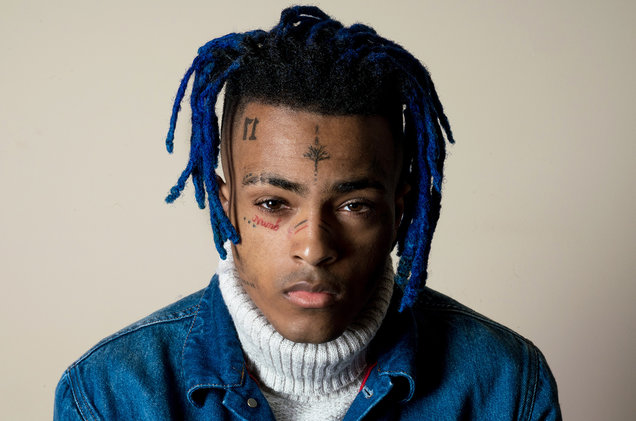
CHART WATCH
Well, this is awkward: The #1 album in the country is ? by XXXTentacion, a rapper-singer best known for beating up a pregnant woman among other disturbing charges. The album accumulated 131,000 equivalent album units in its first week, including 20,000 in traditional sales and what Billboard calls the second-largest streaming week of 2018 (following the opening frame of Migos' Culture II). This success isn't so surprising given that XXXTentacion's previous album 17 debuted at #2 with 87,000 units/18,000 sales six months ago, but still, when I think about his wild popularity in the face of these charges I feel like I need to take a shower.
Back up to #2 is Metallica's Hardwired… To Self-Destruct with 65,000 units and 63,000 in sales, mostly thanks to one of those album/ticket bundle schemes. At 3-4-5-6 are Black Panther, Logic, Migos, and The Greatest Showman. Country act and American Idol alum Scotty McCreery debuts at #7 with 40,000 units/34,000 sales for Seasons Change, while bookish indie-rockers the Decemberists start at #9 with 30,000 units/28,000 sales for I'll Be Your Girl; both of those releases also benefitted from album/ticket bundling. Rounding out the top 10 are Ed Sheeran at #8 and Post Malone at #10.
Over on the Hot 100, Drake's "God's Plan" is #1 for a ninth straight week and, per Billboard, now boasts nine of the 14 biggest streaming weeks of all time despite recording its weakest streaming performance yet. Perhaps more noteworthy, though, is Bebe Rexha and Florida Georgia Line's "Meant To Be" rising to a new #2 peak and becoming the best-charting song by both artists. It's also the highest-charting country song since Lady Antebellum's "Need You Now" went to #2 in 2010.
Ed Sheeran's "Perfect" and Bruno Mars and Cardi B's "Finesse" descend to #3 and #4 respectively, while #5 (Post Malone and Ty Dolla $ign's "Psycho") and #6 (Zedd, Maren Morris, and Grey's "The Middle") remain stationary. Then comes the troublesome XXXTentacion again at #7 with "Sad!" -- his first top-10 hit and one of seven ? tracks on the Hot 100 this week.
After Camila Cabello and Young Thug's "Havana" at #8 comes another problematic new hit, Lil Dicky and Chris Brown's "Freaky Friday," at #9 -- but you've already read all about that. Rounding out the top 10 is the Weeknd and Kendrick Lamar's "Pray For Me" at #10.
POP FIVE
Sam Smith - "Pray" (Feat. Logic)
The moribund gospel ballad "Pray" was butt before, and a couple verses from Logic ain't gonna stop the remix from being butt. It might be enough to land both artists another top-10 hit, though.
https://youtube.com/watch?v=h0xHxZpNAHw
Shawn Mendes - "Lost In Japan"
I wasn't much of a fan of last week's bland power ballad "In My Blood," but this lightweight funk track about flying across Asia to rendezvous with a lover hits the spot. It's an exercise in simple, tasteful, mature adult contemporary pop Justin Timberlake wishes Man Of The Woods had more of.
https://youtube.com/watch?v=ycy30LIbq4w
Charlie Puth - "Change" (Feat. James Taylor)
My critical relationship with Puth is contentious at best, but it's hard to hate on a soft-rock ballad constructed so expertly and presented with such casual grace that James Taylor himself sounds right at home.
https://youtube.com/watch?v=e9XbKS9xWD0
MØ - "Nostalgia"
I am interested to see if MØ can score a big hit without the Diplo and/or Major Lazer brand attached to it. "Nostalgia" is probably not it? She does this weird spoken-word thing on the verses, and I can't tell if it's a liability or if people will respond well to it. The more melodic sections are alright, especially the final chorus section minus drums around the 2:45 mark and the subsequent beat drop just after 3:00. Even if it's not a hit, I appreciate how unconventional this is.
https://youtube.com/watch?v=WOAvDQNNaCA
Jessie Reyez - "Figures, A Reprise" (Feat. Daniel Caesar)
Two of the most promising young singers in R&B link up for something lovely. Bonus points for Reyez's delivery on "Tell me, boy, how in the fuck would you feel?"
https://youtube.com/watch?v=x1bMw2LyJsI
NEWS IN BRIEF
- Taylor Swift is apparently releasing another "Delicate" video on Spotify tonight. (My how times have changed.) [Twitter]
- Shawn Mendes will do a week-long residency at The Late Late Show in June. [Twitter]
- The worst-behaved musical guest while Bill Hader was on SNL? Justin Bieber, duh. [Vulture]
- Swedish House Mafia reunited at Ultra Music Festiva, five years after their final show on the same stage. [DJ Mag]
- Katy Perry did the Witness bonus track "Act My Age" on Japanese TV. [YouTube]
- Zedd scored National Geographic's new One Strange Rock documentary. [ET]
- Video time: Pentatonix released one for their cover of Charlie Puth's "Attention." [YouTube]
- James Bay released one for "Pink Lemonade." [YouTube]
- And 5 Seconds Of Summer released one for "Want You Back." [YouTube]
- Cardi B announced a contest for college students on Tinder. [Twitter]
HOLD ON, WE'RE GOING HOME
The girl Flo Rida sings about in Low was wearing apple bottom jeans, boots with the fur, baggy sweatpants, AND reeboks with the straps all at the same time so we must conclude that she was, in fact, a centaur. In this essay I will
— Splenda Pappy (@caroline_oreo) March 26, 2018
